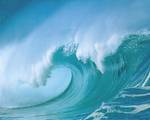
I hear from day to day a constant steady stream of information lately on global warming and how it will increase sea level rise do to melting glaciers, how we will be having more intense tropical storms and how the temperature is gonna cause certain animals to become extinct due to their degree of tolerable habitat ranges being destroyed due to continued warming. One thig that I do not hear much if any information about is the impacts of rising temperatures on pathogens. Many pathogens such as viruses and bacterium thrive in warmer climates (due to the quicker development of larval stages in warmer waters etc). Thus one could expect that this could have a profound impact on the arctic marine mammals in the north. This is magnified due to the fact that many terrrestrial species that have parasites living on them will migrate northwards due to their expansion of their tolerable habitat nranges due to global warming. These animals ca and will bring with them many diseases that coul wipe out entire species of organisms in the arctic. As well arctic ecosystems are fragile anyway due to their low degree of flux with regard to their climate, they are just not adaptable to large scale changes such as bioinvasion etc. I think we have a little more than meets the eye to worry about. its not just polar bears losing their habitat. All species will be affected (some for the worst and some for the better)



